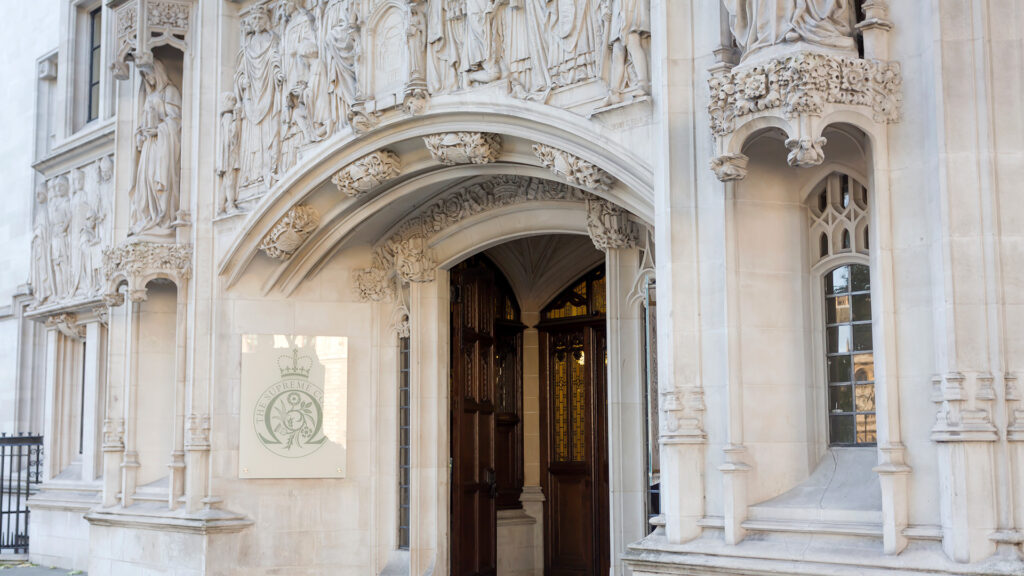Brave New World: International Cryptocurrency Regulation
Cryptocurrencies and blockchain technology have hit the headlines in recent months. Governments and policymakers from key jurisdictions are drafting and publishing guidance to govern the issuance and regulation of Initial Coin Offerings (ICOs) and cryptocurrencies. These have included Switzerland, with Zug now expected to become a key hub for cryptocurrency issuance and being commonly referred to as “Crypto Valley” within the industry.
In this article we look at the current status of the international cryptocurrency market, and give our perspective on the need for further regulation, based on recent experience.
Introduction
The rise in popularity of cryptocurrencies has brought with it a new set of challenges. Many investors and market observers are concerned about the lack of regulation of cryptocurrency tokens and of crypto?issuing companies.
To address these concerns, the Swiss Financial Market Supervisory Authority (FINMA) has published guidelines1 designed to introduce a framework for regulation of cryptocurrency tokens and ICOs.
The UK’s Financial Conduct Authority (FCA) has made several announcements concerning cryptocurrency tokens and assets, which have consistently stated that in certain circumstances some could be considered to be derivatives which would require firms issuing, or dealing in, them to be authorised.
How does it all work?
- A cryptocurrency is a digital form of money, which can be bought, sold and traded on online exchanges.
- The underlying technology is blockchain – a decentralised ledger which allows any party to contribute data.
- Each transaction is verified by a computer server solving a cryptographic (mathematical) puzzle.
- Information stored on the blockchain is considered secure and unchangeable.
- The parties on either side of a blockchain transaction may remain anonymous through encrypted packages of data.
- The peer?to?peer nature of the blockchain is designed to remove the need for any intermediary parties (such as banks) that may otherwise act as a trusted intermediary for traditional currencies.
- Cryptocurrencies can be issued in the form of tokens, allowing investors to buy and sell individual tokens on secondary markets and exchanges.
- Crypto?issuing companies can offer tokens to investors through an ICO, in order to raise capital and obtain market traction (similar to an IPO of share capital).
- Buyers can hold cryptocurrency tokens in a ‘digital wallet’ which allows them to be held, exchanged for goods and/or services, or sold back into the market for profit.
International Regulation
The development and rise in popularity of cryptocurrencies has occurred in a short time frame. Equally, innovation by companies looking to capitalise on the cryptocurrency market is happening at lightning speed, with new cryptocurrency companies and tokens being born every day and with thousands now in existence.
“The time has come to hold the crypto?asset ecosystem to the same standards as the rest of the financial system.” Mark Carney, Governor of the Bank of England2.
International governments have not yet been able to demonstrate a comprehensive understanding of this changing market which will be a prerequisite to establishing an effective, overarching regulatory regime.
Switzerland
Switzerland is expected to become one of the largest global homes to cryptocurrency companies. The FINMA guidelines outline that there are currently no cryptocurrency?specific regulatory requirements, but set out the framework under which tokens and ICOs can be regulated under the existing financial services regulatory regime in the following ways:
- Payment tokens (such as cryptocurrencies) intended to transfer value or to acquire goods/services shall be regulated as any other form of cash.
- Utility tokens (such as providing access to digital applications/services) shall be regulated as a security only if the purpose of the token is as an investment, otherwise it will not be regulated as such.
- Asset tokens (such as asset, debt or equity claims against the issuer) shall be regulated as securities, provided they are suitable for mass standardised trading.
The impact of this analogous treatment of cryptocurrency tokens means that effective existing regulation is already in place, and companies wishing to launch an ICO have pre?existing rules to follow. FINMA will classify tokens according to their economic function, not how they may have been described by issuers.
There are also minimum information requirements for companies issuing an ICO to provide to FINMA, as well as a prerequisite to comply with anti?money laundering regulations, therefore addressing one of the key criticisms that cryptocurrencies may be used to further financial crime.
UK
The UK government has also published a paper3 on the potential uses of blockchain technology, including a vision for the future of an economic ecosystem which includes digital cryptocurrency ‘wallet’ providers and other service providers in the digital currency landscape.
The paper discusses how a revolution in the type of ‘code’ required to regulate the financial services industry will have to develop in order to provide comprehensive regulation. The current financial system is regulated using legal code, whereas the emerging cryptocurrency financial system will also require regulation over technical code. The UK government has indicated the need to ‘verify’ technical code before it enters a distributed ledger system in order to maintain integrity of the financial system.
The FCA has made several statements about cryptocurrencies and ICOs. Its first warned investors about the risks of cryptocurrency investments4. It subsequently reiterated that some cryptocurrency tokens and assets could be categorised as regulated specified investments and derivatives which would require firms issuing and dealing in them to be FCA authorised5.
The FCA also offers solutions to try and safeguard the rapidly changing financial market. The FCA Sandbox6 allows innovating companies to test the regulatory impacts of new products and services in a controlled environment.
Worldwide
| Jurisdiction | Regulatory Regime |
|---|---|
| United Kingdom |
|
| Switzerland |
|
| China |
|
| Japan |
|
| United States |
|
| Iran |
|
| India |
|
HFW Perspective
Cryptocurrency regulation is necessary for two main functions: (i) to ensure new market entrants have legitimate business aims and security before issuing tokens on the open crypto market; and (ii) to protect investors and new consumers of cryptocurrencies when investing money in new cryptocurrency tokens.
Switzerland, with the first foray into cryptocurrency regulation, has taken an appropriate approach to regulation by using existing regulatory regimes and distinguishing between the various functions of cryptocurrency tokens.
However, as cryptocurrencies develop and become more advanced, the existing financial services framework is not a scalable solution. Google’s decision to remove advertising for cryptocurrency trading and the European Central Bank’s comments about cryptocurrencies such as BitCoin being unstable and high?risk indicate that regulatory reform is required to safeguard potential investors. That regulation, however, must be proportionate, appropriate and sufficiently flexible in order to allow the industry to grow, to innovate and to transform over time.
HFW is currently acting for a number of clients in the cryptocurrency space including advising a client in issuing a new cryptocurrency token backed by physical commodities, advising a client on the setting up and operation of a global digital platform and providing a client with structured, risk, regulatory and operational advice on a potential ICO.
Research undertaken by Rohan Soni, Trainee Solicitor.
For further information please contact HFW’s Digital Trade Group.
Footnotes
- https://bit.ly/2BzA88M
- https://bitcoinmagazine.com/articles/mark-carney-cryptocurrencies-do-not-pose-serious-risks/
- https://bit.ly/1WreVPL
- https://www.fca.org.uk/news/statements/initial-coin-offerings
- https://www.fca.org.uk/news/statements/cryptocurrency-derivatives
- https://www.fca.org.uk/publication/research/regulatory-sandbox.pdf
- https://www.cnbc.com/2018/03/13/google-bans-crypto-ads.html
- https://www.bloomberg.com/news/articles/2017-12-15/what-the-world-s-central-banks-are-saying-about-cryptocurrencies










